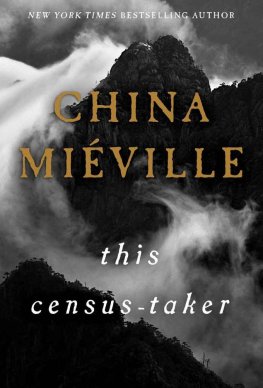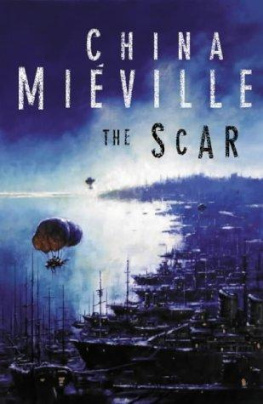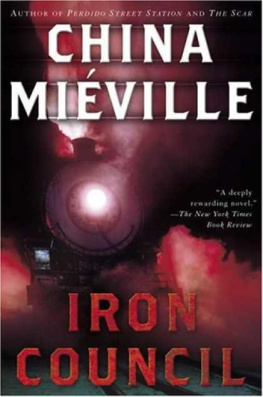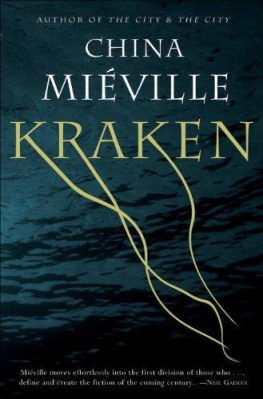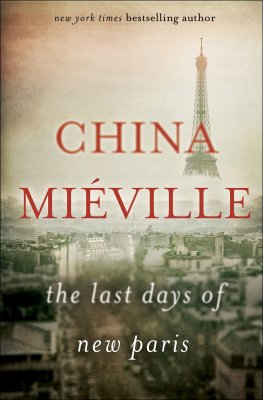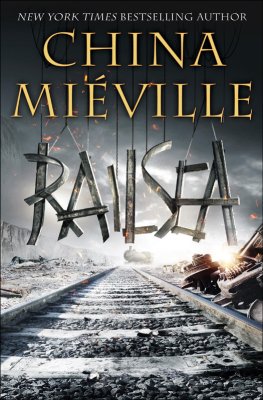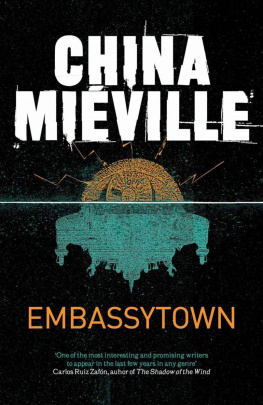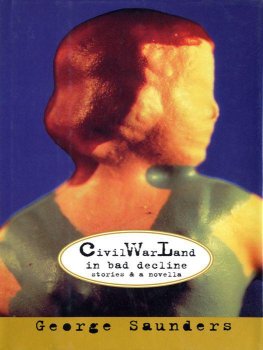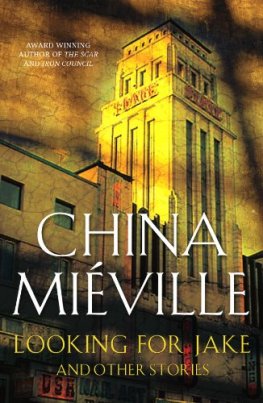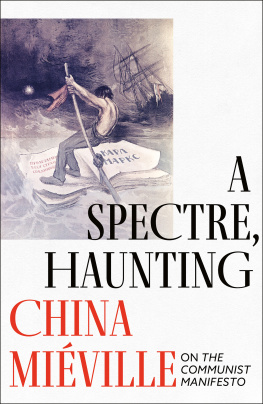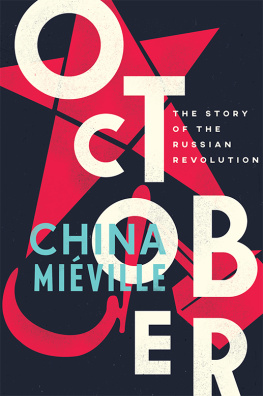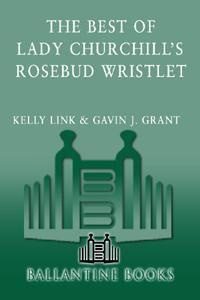China Mieville
This Census-Taker
Like all these long low squat houses, it had been built not for but against. They were built against the forest, against the sea, against the elements, against the world. They had roof-beams and doors and hatred as though in this part of the world an architect always included hatred among his tools, and said to his apprentice: Mind youve brought along enough hatred today.
Jane Gaskell, Some Summer Lands

A boy ran down a hill path screaming. The boy was I. He held his hands up and out in front of him as if hed dipped them in paint and was coming to make a picture, to press them down to paper, but all there was on him was dirt. There was no blood on his palms.
He was nine years old, I think, and this was the fastest hed ever run, and he stumbled and careered and it seemed many times as if he would fall into the rocks and gorse that surrounded the footpath, but I kept my feet and descended into the shadow of my hill. The air felt wet but no rain had fallen. I sent up cold dust behind me and little animals scuttling ahead.
People in the town saw that cloud long before I arrived, Samma would later tell me. When she was sure that it wasnt just weather, she was one of those who came to wait by the pump beyond the bridge to the west, where there were the last buildings, to watch whatever was coming. After that day, when I saw her, when she could, Samma would tell me stories, including the story of when I came down the hill.
I knew it was you, shed say. That dirt devil on its way down. Its the boy, I said. A lot of us did. You mustve run a mile while I watched you, you ran and ran and you didnt slow once. You came right past the nails. The nails: my name that she had adopted for a copse of dead white bushes. Right by every split in the hill and you must have heard all the devils down there howling at you. When she talked like this Id stare at her urgently, without speaking. We heard you coming, making noises like a hurt gull or something, and I said: It is, its the boy!
In Id come. I turned with the path, away from where the slope grew drier and stonier and inclined precipitously, and I ran for where the crowd was waiting. I could see down spaces between those outmost walls to the towns built-up bridge. I was weeping so hard I retched, came loud and filthy past the wire-spinning mill and the glassworks, past barns and stores and the ground before them strewn with old straw and the shards of things that had been broken within, toward the cobbles and concrete in view of that bridge itself, where the townspeople waited.
There were children among them: those with adults were held back by them. I made noises as if I were a whooping baby. I struggled for air.
I was the only one moving while all there stared at my little figure raising dirt, until someone, I dont know who, started forward to meet me, and they brought others after them in shame, Samma among them.
They ran to me with their own arms out like mine, to take me.
Look! I heard a man say. God, look at him!
I kept up the hands I thought were bloody for them to see.
I shouted, My mother killed my father!
I was an uphiller. Above my house was a steepening distance of grass and loose earth, then slabs of flint in a rough ziggurat, and then at last, out of sight, the peak. No path went there. We lived as high on the hill as anyone. Our house was at the same level of the slope as those of a few weather-watchers and hermits and witches you could call our neighbors, though youd have to walk a while from where we lived to see any of their places, and we never visited them nor they us.
My house had three stories that grew less and less finished as they rose, as if the builders had lost spirit the further they were from the soil. On the ground were a kitchen with a parlor, my fathers workroom, a passage and a cornering wooden stair. In the middle, two small, less finely finished bedrooms, my fathers and my mothers, and a cubby where I slept between them.
On the highest floor any drive to subdivide had been defeated and there was only one space, into which you could feel air come through the imperfect outer walls and the cracks where window-frames met plaster.
I liked to climb the steep stairs to play alone in that wind-filled room. All the rest of the house was whitewashed or painted in an ocher made from local earth, but two walls of the attic were papered in a repeating design. The tangled flowers and pagodas astonished me. I couldnt imagine my mother or my father choosing them. I decided the paper must have predated my parents arrival, which made me contemplate the house before they came to it, the house empty of them. That made me queasy and excited.
In the kitchen and where my father worked there were lights and tools that ran off current from the generator we would sometimes fire up. In the bedrooms we used candles. The windows of the top floor had no curtains and every day the light would cross the room, from one end to the other. The wallpaper was faded by years of the suns attention. In one corner, low down where I thought it would be secret, I drew animals around the buildings and among the stems.
My house stood by the paths end, wedged into the rocks of the hill as if shying back from where the ground fell away before it. Between the house and that drop was a rusted wire fence in front of which Id stand to watch hill animals feral and crossbred cats and dogs, dassies, the lean descendants of goat and sheep escapees trip and scatter between stone shapes and the bushes. There were those beasts with territories I came to know, on which I came to know that I was encroaching, and those which visited repeatedly, seemed curious about me a furious drab songbird claiming certain trees, a red-furred dog not much bigger than a puppy but which moved with an older dogs caution.
From here I could make out the black roofs of the town. Id kick stones small enough to go through the metal links and watch them bounce into the boscage, or further all the way, I imagined, to the water, to the gulley below the buildings.
It was one town scattered up and down the sides of the two hills and between them on the bridge. And like everyone on both those hills, we were of it, though we lived in a house as far from the streets as it could be for that still to be true. It was the law of this town to which we were subject. When I came down that day, I wasnt running for the law, but the law found me.
The people comforted me in a rough way.
What did you see, boy? they asked. What happened?
All I could do was cry.
Your mum did something? a woman said to me, kneeling and taking my shoulders in her hands. She did something to your dad? Tell us.
She confused me. She was trying to make me meet her eye. What she said confused me because I didnt think she was describing what Id seen, what Id walked in on, but as she spoke I realized she was repeating what Id told her. The boy, I, had said his mother killed his father.
Still now if I consider the thing I saw in my house that day what comes back to me first is my mothers hands: her calm expression, the sight of her braced and striking, her hands coming down hard, a knife, my fathers eyes closed, a glimpse of his mouth, his mouth full of blood, blood on the pale flowers of the walls, and the boy has to think all that, first, I have no choice, I cant think around it, and every time it takes me a moment to reflect and prepare to say that no, thats not what it was, surely, that the face of the person being hit was hidden, or certainly that it wasnt my fathers.

